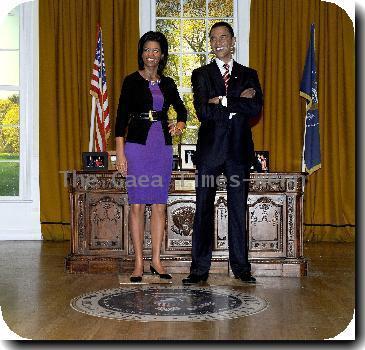Senate Democrats plan bill to create $20B escrow fund for BP oil cleanup, compensation
By Becky Bohrer, APTuesday, June 15, 2010
Senate Dems plan bill to set up BP cleanup escrow
JUNEAU, Alaska — Some Senate Democrats said Tuesday they are preparing legislation that would require BP PLC to establish an escrow fund — with perhaps $20 billion — to compensate victims and cover the cleanup costs of the Gulf of Mexico oil spill.
U.S. Sen. Mark Begich of Alaska said he plans to introduce a bill by Thursday that would not only require a set-aside by BP — “sufficient” to compensate those affected by the spill — but also to create an escrow system that other companies wanting to develop federal drilling leases would agree to pay into if they’re responsible for a spill.
Begich, along with Sens. Jeanne Shaheen of New Hampshire and Amy Klobuchar of Minnesota, said the goal is to avoid a repeat of the 1989 Exxon Valdez disaster in Alaska, when the fight over money dragged out in courts over roughly two decades.
While Begich said it’s too early to say how much money should be set aside for the Gulf spill, Senate Democrats, in a letter to BP CEO Tony Hayward, asked that $20 billion be put in escrow for economic damages and cleanup costs. Klobuchar said that’s a rough estimate, based on the still-rising costs of the uncontained spill. Democrats have asked BP to respond to their request by Friday.
Steve Rinehart, a BP spokesman, said that, as a courtesy, the company responds to lawmaker requests. But he said he hadn’t seen specifics of their plan Tuesday and couldn’t immediately comment.
A White House spokesman also said President Barack Obama’s administration and BP have been working on the details for an independently managed victims’ compensation fund.
Begich said asking BP to comply is fine, but he said it’s just as important to have a law in place, to assure “full and just” compensation to victims of future spills.
Last year, Exxon Mobil Corp. decided not to appeal hundreds of millions of dollars in interest on the $507.5 million in punitive damages arising from the Valdez spill 20 years earlier. That disaster sent about 11 million gallons of crude oil into Alaska’s Prince William Sound.
Begich said the final judgment in the case was a fraction of what a court initially ordered — and insult to injury for thousands of fishermen and small business owners whose livelihoods were devastated and who watched Exxon fight the paying of “legitimate” claims for nearly two decades.
A number of legislative responses are being weighed in the wake of BP’s April 20 oil rig explosion that killed 11 workers and unleashed a massive oil slick. On Tuesday, for example, U.S. Sen. Lisa Murkowski, R-Alaska, proposed legislation that, among other things, would establish an administrative process for approving compensation claims — an effort aimed at speeding payments — and limit attorneys’ fees related to the spill.
Tim Richardson, of the American Land Conservancy, called what happened in Alaska a “holocaust of economic proportions,” citing what he said was an increase in social ills, like divorces, suicides and serious crimes. He said he supports government efforts to step in.
Richardson said a settlement on wildlife aspects worked, with money overseen by a state-federal panel. But R.J. Kopchak, a herring fisherman from the region, disagrees. While there now seems a better effort to deal with the loss of herring, for roughly a decade beginning around 1994, he said, there was little more than “lip service” from state and federal officials because the issue was a tough one to handle.
“Fishermen felt hung out to dry,” Kopchak said.
He said he supports the escrow idea and compensating affected families quickly. “Delays further fragment families and communities,” he said. But he acknowledged challenges ahead — defining what’s a “legitimate” claim, for example — and a need to address long-term impacts from spills.
While the media glare in the Gulf region is bright now, “nobody cares after a while,” he said.
“My word of caution to the Gulf: pay attention and be focused and loud,” Kopchak said. “And you’re still going to get screwed in the long-run, though maybe not as bad.”
(This version CORRECTS Corrects to Thursday in graf 2. EDITS headline. Note language in last graf. Moving on general news and financial services.)
Tags: Accidents, Alaska, Barack Obama, Corporate Crime, Environmental Concerns, Government Regulations, Industry Regulation, Juneau, North America, Political Organizations, Political Parties, United States




